All images courtesy of Brian James Fox
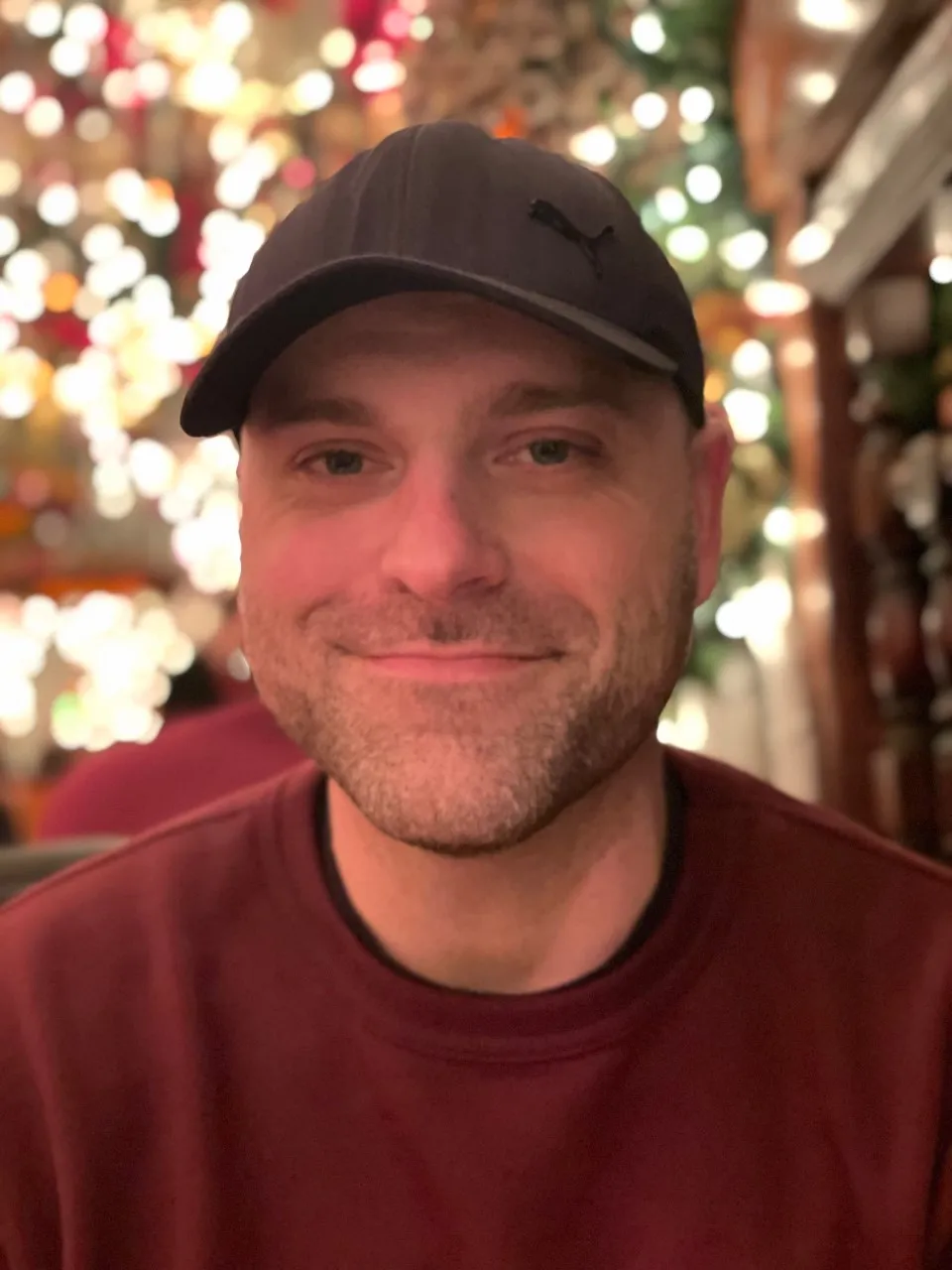
By Andrew Daly
andrew@vinylwriter.com
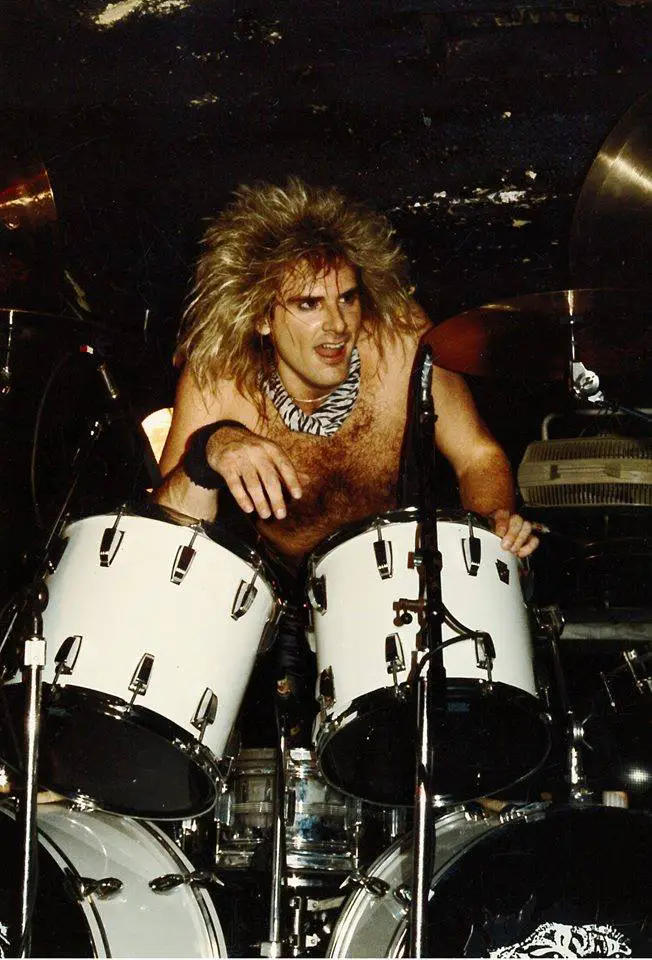
Throughout the history of rock and metal music, there have been a great many ancillary players who have helped mold the genre into what it is today. While these musicians may not be household names, their importance cannot be understated.
Veteran drummer, Brian James Fox is one of these players.
From a young age, Brian James Fox knew he wanted to play the drums, and after moving cross-country from Milwaukee to California, cutting his teeth on the Orange County club circuit, and making his way in various cover bands to make ends meet, Fox joined forces with starcrossed guitar virtuoso, and former KISS and Black Sabbath alumni, Mark St. John, and David Donato, along with Mark’s brother, Michael Norton, to form White Tiger.
White Tiger had the pedigree, but without major label support, the group’s self-titled record stalled, and Brian James Fox found himself on the move again.
After eventful auditions for David Lee Roth, and Ozzy Osbourne, Fox joined the Gene Simmons backed, Silent Rage, and finally seemed to be on a well-deserved trajectory to stardom, before the grunge era collided with the tail end of hair metal, and put things to an end once again.
As the 90s rolled on, Fox continued to be a hot hand to call whenever someone needed a hard-hitting drummer, and the decade saw him join the Michael Anthony backed Moonshine, and garner another audition, this time with Richie Blackmore’s reformed Rainbow, but still, it was not to be.
In the late 90s, Fox soldiered home to Milwaukee, and instead chose to leave music behind, and raise a family, but music and the drums were in his blood, and eventually, they came calling once again, this time, in the form of YouTube videos, and cover band’s for the local festival and club scene, which harken back to Fox’s early roots.
In this career-spanning interview, Brian James Fox speaks from the perspective of a man who witnessed the hair metal and glam era unfold right before his very eyes, from the trenches. Among other things, we touch on the formation of White Tiger, joining Silent Rage, assisting Gene Simmons in writing, “Domino,” working with Vinnie Vincent, playing soccer with Richie Blackmore, jamming with Sammy Hagar, and a whole lot more.
Andrew:
Brian, what got you hooked on playing music, and subsequently, the drums?
Brian:
Oh, just kind of banging away on stuff when I was a kid. I was maybe about ten or eleven. I’d go down to the ice cream place and ask them if they had any of the big cardboard tubs that they kept the ice cream in. I would take those, and I’d construct a whole drum set out of those things with scotch tape, or duct tape — whatever I could find. I’d use my dad’s welding rods as sticks, and the thing would last for maybe five minutes, and then fall apart. [Laughs]. I never really thought about any other instrument. I got a drum set when I was thirteen. I started playing in a band in the bars when I was fourteen, and I was playing with like, twenty-three-year-olds. [Laughs]. I always looked older than I was, and I never told them my age. There were no questions, I just played. But why did I get into it? Who knows?
Andrew:
Sometimes it’s more of a feeling than a concrete thing, I guess.
Brian:
Yeah. When I was growing up, I would see Richie Blackmore in concert or something on the ABC’s In Concert, and I wanted to play guitar and tried, but that just did not click at all. So, I thought maybe there could be something to this drum idea. [Laughs].
Andrew:
As a young drummer, who were some of your early influences?
Brian:
Well, John Bonham, for starters. He was probably the main one, and then, Bill Ward from Black Sabbath. Those two really got me into the heavy metal. I loved The Stones and Charlie Watts. And then along comes Neal Peart, and that just changed everything. I was really into Tommy Aldridge. When I saw Tommy Aldridge play, that just blew me away. I saw him play, and then, the next day, I’m saving up money for a double bass drum. I also can’t forget Ian Paice, Lee Kerslake, and Leonard Haze.
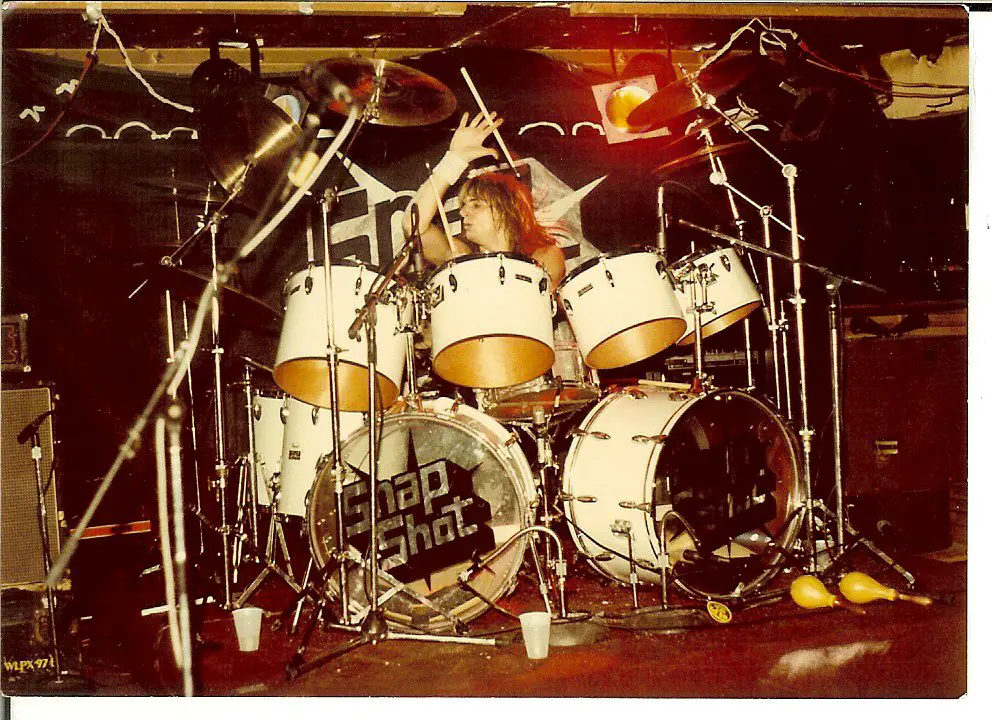

Andrew:
Before you got out to California, take me through some of your early experiences in bands before you hit The Strip.
Brian:
Well, back home in Milwaukee, I was playing in various bands, but then there was one that was writing originals. We were doing covers too, and we toured a lot, and that band was called Snapshot. After a few years, that band broke up, and then, I decided to move out west, and give it a whirl. While I was on the road, I met another band in El Paso called Pocketful, and they were based out of Salt Lake City. Now, they were always on the road, they really didn’t have a home, they were just always out. And so, when they relocated to Orange County, California, and I called them up and said, “I’d like to find a band out there, can I stay with you guys?” Eventually, they just said, “Well, why don’t you just join us?” And so, I joined them. I worked pretty solid with Pocketful for about four or five years. We did some demos, and we opened up for a bunch of people like Tommy Tutone, and Huey Lewis, but before they were really big.
With Pocketful, the whole time, we were doing the Orange County, California club circuit. Around then, Mark St. John was always playing in bands in the same circuit, and we were kind of rival bands, and we’d always kind of run into each other every now and then, so we knew each other, and then he got the KISS gig. At the same time, David Donato, who was living close to me in Huntington Beach, he gets the Black Sabbath gig, so now, my buddies are in KISS and Black Sabbath. I was like, “I’ll be damned.”
Andrew:
There is a lot of conjecture regarding Mark St. John’s tenure in KISS. Knowing Mark as you did back then, did he ever elaborate on his time in KISS, and his eventual departure?
Brian:
Everything that’s ever been printed is pretty much the same story that I heard directly. Mark basically said that his hand blew up. So, when he was putting White Tiger together, and he asked me to join, naturally, I asked, “How’s your hand? Is it gonna happen again?” He goes, “Well, you never know, but it seems really good right now.”
Andrew:
Take me through the formation of White Tiger.
Brian:
Well, some of the management approached me about them putting together a band. I heard the songs, and I really liked the demos. As I said, I knew Mark, we were playing the Orange County circuit, he was in a band called FrontPage. I would go see his band, and then he would come to see my band, and that was Pocketful at the time, so we always ran into each other. So, when they were putting White Tiger together, and they were looking for a drummer, I guess I popped into their heads, and that was basically it. We just always kind of knew each other and were in the same circles.
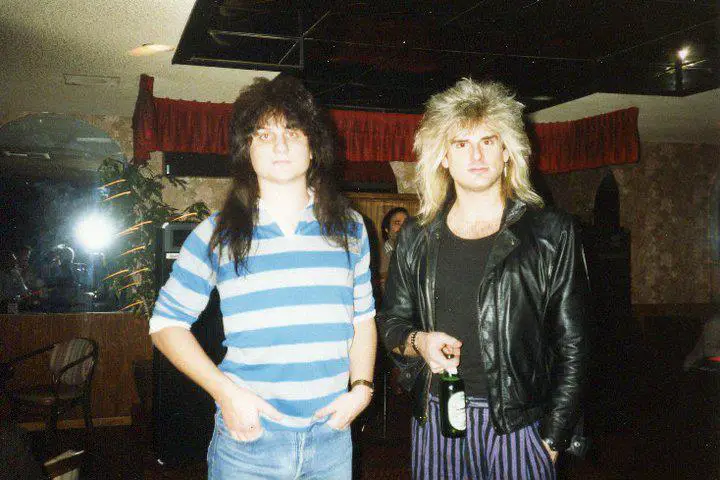
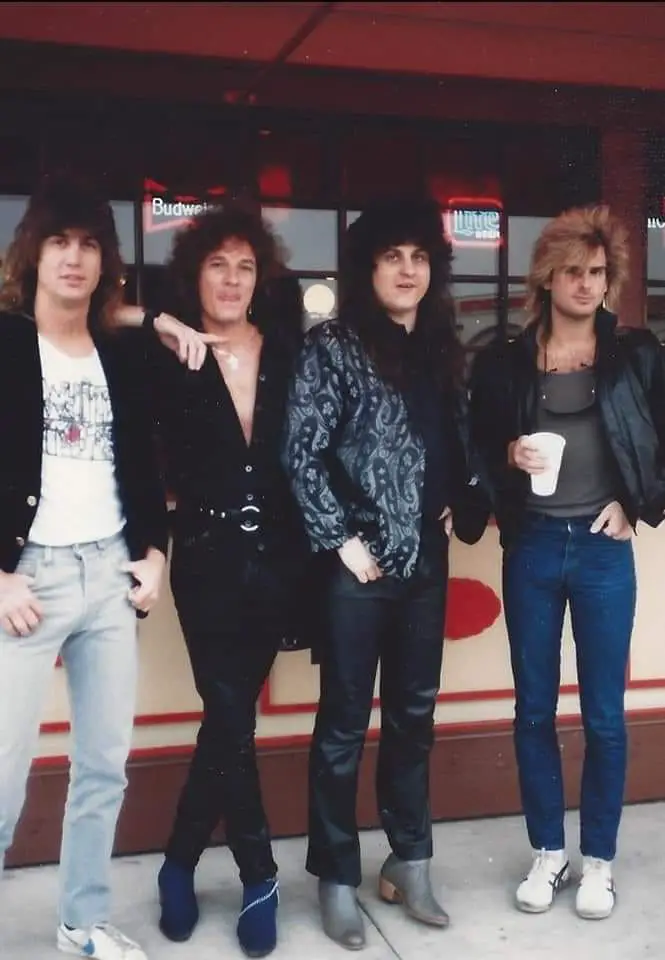
Andrew:
If you can, dig into the recording of White Tiger’s lone album, White Tiger.
Brian:
God, Mark was loud. I got the demos, and he [Mark] basically told me to play what was on the demos. I was essentially reduced to a drum machine. I kept it really basic. We would rehearse, rehearse, rehearse, and, and then Mark’s like, “Okay, we’re ready to record.” And then, afterward, he was like, “Well, you’ve got to liven it up a little bit, put some risks in there.” … “Well, you told me to play it straight.” [Laughs]. I wish I could have worked on it a little bit. I wish I could have played more on it, and showed off a little bit more, but they told me to keep it simple.
Working in the studio, I just did my tracks, and at that time, I had a full-time job. I basically just did my tracks, and then everybody went and played on top of that. Every now and then I’d pop my head in the studio, and hear what it sounded like, and when you’re in a studio, it just sounds so great, but then, you get a cassette tape and you want it to sound like that, and it doesn’t, so you get disappointed. I just wish we had a little more guidance in that direction. We did an independent, self-released, and I kind of personally wish it would have sounded better. I think we could have used a producer, and I think that we should have spent a little bit more money on a producer. But you know, it’s what it is.
Andrew:
Ultimately, the record was in keeping with the genre and the sound of the time. It’s looked back upon as a really solid, and underrated record. Why do you feel that White Tiger was unable to hook on with a major label?
Brian:
I don’t really know. That was heartbreaking because I thought we had good songs, but I think one issue was we as a band was not constantly writing. I think we should have had about one-hundred songs to pick from, but we just wrote that first record, and then that was it. I was like, “Okay, let’s play some gigs.” … “Okay, now let’s write the next record.” And that was when we did the demo for the next one, but that just kind of fizzled. I do like the songs. I thought the songs were really catchy. Maybe they could have been a little bit shorter. I thought that maybe they were a little bit too long, and again, that’s where a producer would have come in handy. I personally thought it was pretty heavy. I thought the songs were really good. We had big dreams, you know? We thought, “Alright, we have a former KISS member and a Black Sabbath member. Here we go.” But it didn’t happen.
Andrew:
What led to the demise of White Tiger? Did it just quietly fizzle? Or was there one specific event that ended the band?
Brian:
It just honestly dissipated. Nobody was calling and nobody was picking up the phone. And there was this thing where I wanted to play, so I got involved with a cover band, and Mark wasn’t crazy about it, he just wanted the band to be like superstars. Mark had an attitude, and would be like, “You’re not allowed to go play bars.” I didn’t really agree with that, and then, nothing was happening, and I needed a little more income. Once again, I wanted to play, and we were poor, so it was a case of me just going in, I go, “Guys, I gotta go make some money. I’m gonna go play,” and I think that maybe Mark was a little upset with that, that I did do that. I think it just fizzled. I really can’t pinpoint why. Nobody ever said, “You’re fired,” or, “I quit,” or anything. Honestly, the band just…evaporated. I think was broken hearts, everybody expected something big to happen. We did demos and they were working on it, and I don’t really know their personal lives, we really didn’t hang out all that much, we just kind of rehearsed together. I don’t know if something was going on between somebody — I really don’t know. It just fizzled. And that’s happened to other bands in my past too. We just stopped calling each other.

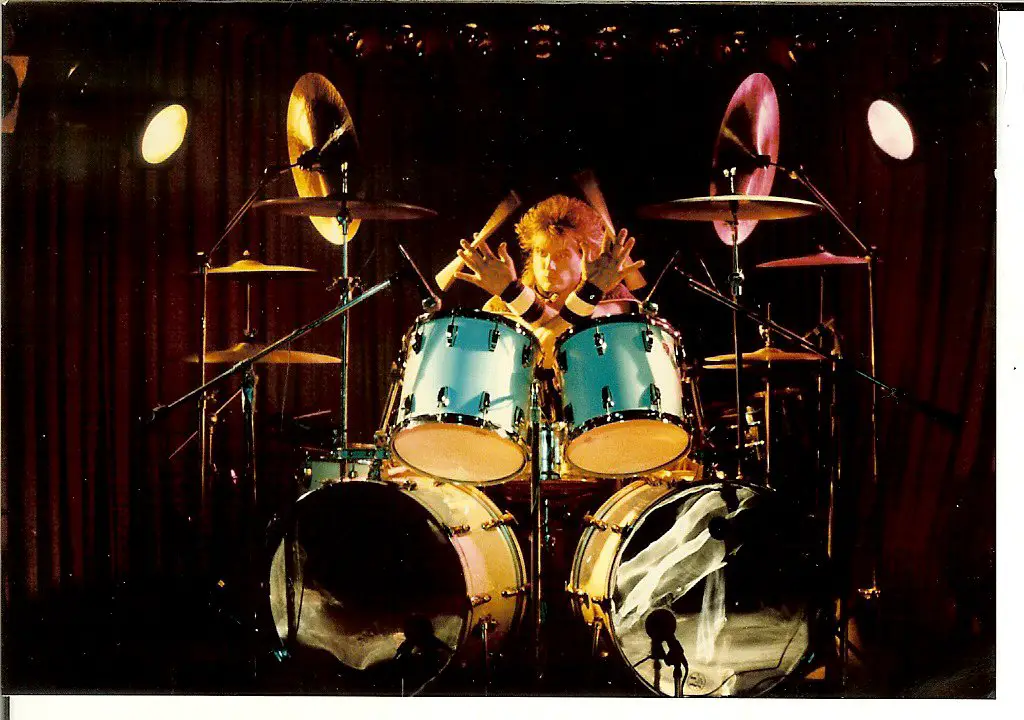
Andrew:
For as talented as he was, after the end of White Tiger, Mark St, John didn’t do much. Did you ever hear from him again? Did you keep in touch with him before he, unfortunately, passed away some years back?
Brian:
No, I did not. We weren’t really true buddies or friends that hung out together. We just played in a band. So, we kept in touch just in a business sense, but no, to be honest. This was before Facebook and all that. I keep in touch a little bit with Mike, the bass player, Mike Norton, Mark’s brother. I saw him a couple of years ago, when I visited California, and it was great to see him. It was really, really, really great to see him. And David Donato, he passed away a couple of years ago also. But to answer your question, no, we just kind of fizzled, and I think I saw Mark at some concert somewhere, we just said, “Hey, how’s it going?” Then, we shook hands and, went our separate ways. Looking back, let’s just talk about just how heartbreaking of a thing it had to be for him. He’s in one of the biggest bands in the world in KISS, and then he gets some sort of a weird hand thing. I mean, that’s got to be crushing.
Andrew:
Very true. You auditioned for David Lee Roth before he left Van Halen. Is that right?
Brian:
I was living in Buena Park. I had a gig in Huntington Beach, it was Saturday night, my ’74 Dodge Dart was in the shop, and I was gonna have my roommate drive me to the gig. Suddenly, I get a call and it said, “Hey, get down to Hollywood now.” … “I don’t have a car. For what?” … “I can’t tell you.” … “What do you mean, you can’t tell me?” It was a friend of mine. His name was Mike Sprague, he’s got a company called Sound Image, and he was the sound man for Van Halen in the early and mid-80s. So, he goes, “I’ll come and get you.” … “Alright, but I have a gig at 8:30.” He goes, “I’ll drive you to the gig.” … “Oh, so you’re gonna come from Hollywood, and pick me up in Buena Park?” So, he comes down and he picks me up and I’m just going, “Who is it? Who am I auditioning for?” And then, at the same time, I don’t have any drumsticks. [Laughs]. I don’t have any because all my stuff is at the club. It was kind of funny…I went to a NAMM show like a year earlier, and somebody gave me these drum sticks where they have a little switch at the bottom of the stick, where you flick a switch in the tips light up. So, that’s what I went into the audition with. [Laughs].
So, I have no idea what I’m in for, and Mike goes, “Don’t worry, they just want to hear your style.” He tells me, “It’s a band with Steve Vai and Billy Sheehan,” and to be completely honest, I didn’t know who they were at the time, they’re world-famous now, but at that time, I didn’t know them. We’re driving, Mike goes, “Well, they’re gonna tell you to play a shuffle beat, they’re gonna ask you to play your favorite beats,” and blah blah blah, whatever, and I was like the last one of they were auditioning for the day. So, I was like, “Great…the last guy….everybody’s gonna be sick and tired.” And so, I come in, and they say, “Hello. Alright, give us your favorite beat,” and not to brag or anything, but I just went into one of my coolest beats, and really slammed something heavy. Everybody goes nuts, and says, “Well, it’s about time!” Then they said, “Okay, play us a shuffle beat,” and I’m in my head going, “I really can’t think of a shuffle beat,” I was just kind of staggered going, “I don’t know what I’m doing,” and I kind of stopped and started again. And then he tells me that, “This was an audition for David Lee Roth, but Dave can’t be there, and it can’t be known because it’s top-secret, because he’s still in Van Halen. He’s trying out band members in secret, so that’s why I couldn’t tell you.” … “I just auditioned for David Lee Roth?” … “Yeah, you did.” … “Well, I wish I was more prepared.”
Obviously, I didn’t get the gig, and they got Greg Bissonette, who is a spectacular drummer. Greg is a far better drummer than I am. I would have been a good choice, but Gregg Bissonette was just a top-notch choice. And at the same time, there were Hollywood people…it was theater seating, and in the back is where everybody was sitting with their had clipboards, but they were in the dark. And there was a whole bunch of Hollywood bands that were like, “Well, while we’re here, we’re looking for a drummer too, so we’ll just get the remnants.” [Laughs].
Andrew:
Do you recall who else was in the running aside from yourself, and Greg?
Brian:
Well, they did not want a name, and Mike was telling me that Terry Bozio was interested but Dave didn’t want him. Dave didn’t want a famous person, he wanted somebody unknown because Dave was not about to give away the spotlight. But I was like, “I’m competing against Terry Bozio. Are you kidding me?” [Laughs].
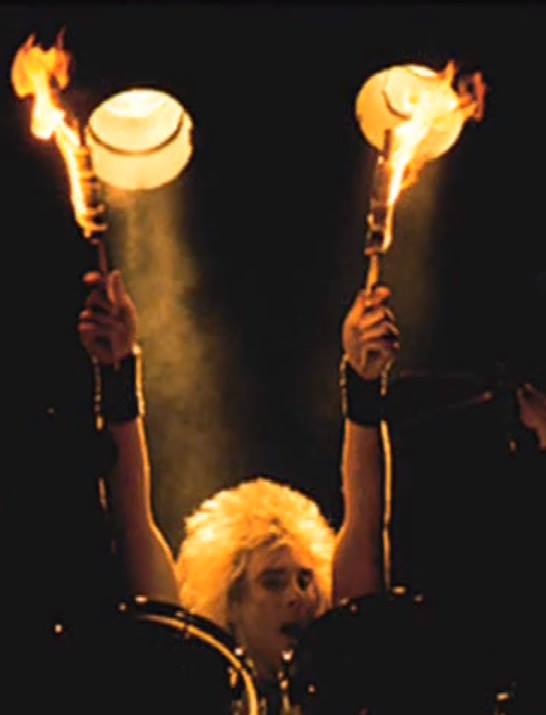
Andrew:
Take me through your audition for Ozzy Osbourne.
Brian:
Well, it started with Randy Castillo, Ozzy’s drummer at the time, who when I got the call, I was told he broke his ankle on a skiing trip. Now, Ozzy had a tour planned, and apparently, they needed a drummer pronto, and so they had the audition. I knew a guy named Gavin, I can’t remember his last name, but he makes the call to where I was living at the time in Huntington Beach. Back then, I had five roommates that were all in the construction business, and they worked really hard, and I think it was a Saturday, and they said they were taking a nap, or something, and they went, “Hey man, there was a message from someone named Sharon. She sounded really British, and she was asking for a ‘Brian Fox.’” I go, “Well, it’s not on the answering machine,” … “We must have erased it. It was someone named Sharon…Sharon Osbourne or something like that.” And my roommate, he’s laying on the floor, taking a nap on the carpet, not realizing what had happened at all.
Well, luckily, I knew this Gavin guy and he told me they were down in Hollywood, so I managed to get in touch and he said, “Yeah, can you be in the studio on this day?” … “Yes. What songs should I learn?” So, they gave me four songs to learn, and while I knew the songs, I didn’t know exactly how to play them drum-wise, I didn’t have copies of the albums, and I was really poor, and couldn’t buy them. I went, “Oh, I have the Ozzy Live thing on cassette, I’ll just use that,” so I was learning the songs through that. Now, the studio songs had fade-out endings, but I learned to live endings because all I had was this cassette. So, I go through to the audition, it was Jake E. Lee and Bob Daisley, and again, my friend Gavin, who set it up. I just hung out with the guys for a bit, and after they got to know me, they just said, “Alright, Brian, let’s see what you got.” There was a long line of drummers that came from all over the country, and I was slotted to play for maybe twenty minutes, but we ended up playing about four for an hour, took a break, and played another hour. And they were asking me about management, and this and that, but the thing is, Randy decided that his ankle was going to heal itself, and so, the rest is history.
Andrew:
It sounds like you came very close to getting the gig.
Brian:
Very, very, very close. Well, at least, that’s the way they treated me. When we did the audition, we did it without Ozzy vocals, but then he [Ozzy] shows up at like four in the afternoon. He was up from the night before, and he was wearing a tux. Ozzy was just sitting there watching, and we just did the songs without vocals, but it was just funny seeing Ozzy in this tuxedo. It was surreal.
Andrew:
If you can recall, which tracks did you play during the audition with Jake and Bob?
Brian:
We ended up doing a bunch, even some songs I hadn’t learned. We did “Over The Mountain,” “Crazy Train,” “Flying High Again,” and a bunch more. Some of them we ran through multiple times to see if I really had it down. They wanted to see how I could play slow songs, and uptempo one’s too. It was a cool thing playing the songs that faded out on the studio records, but I knew the live endings from my cassette, and Jake E Lee looks at me and goes, “How did you know that ending?” [Laughs].
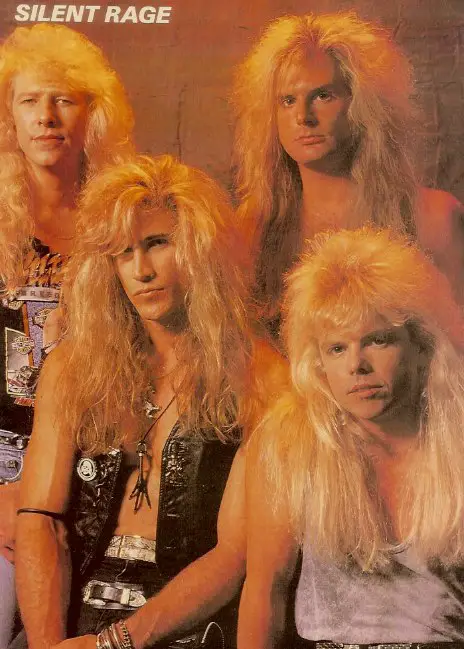
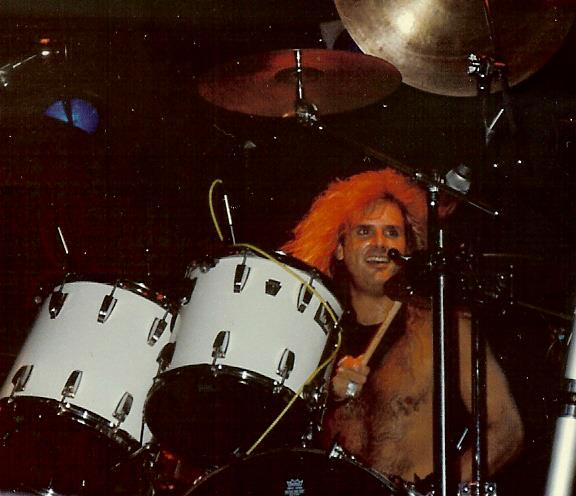
Andrew:
Alright, Brian. Let’s dig into Silent Rage. How did you end up joining the band?
Brian:
I had heard that they had gotten a record deal with Simmons records, and I heard through the grapevine they were having issues with the drummer that were they were using, so I contacted them and got an audition. At the time, they were using a couple of different drummers, and with Don’t Touch Me, their record, which was the first one with Simmons, I did not play on that, because I joined afterward, but I am credited. I joined before it was released, but it was all recorded already. I did a photo session with them, and then, they put me on the cover, and had to change the credits, had to re-edit, and put my name on it. And it was kind of a confusing thing with my name too — let me go back.
So, the story goes like this, I had supposedly gotten the Silent Rage gig, but then the guy said, “Well, Gene has to approve of you,” and I go, “Well, where’s he going to see us play? Do we have to do a thing?” … “No, he wants to meet you and approve of you in person.” … “All right. Okay.” So, I’m driving in my ’74 Dodge Dart somewhere in Beverly Hills, trying to find Gene Simmons’ house, and I come up to a gate, press the button, the gate opens, and I’m twisting and turning up the driveway to his mansion. The rest of the guys are there, and there’s Gene, and I’m trying to talk, and the first thing that he says to me, and I quote, “Oh, you’re a short one,” which was a joke because I’m a tall guy. So, already, he already he doesn’t approve. I’m too tall. [Laughs].
So, we sit down, and Gene goes, “Do you want a Seven-Up?” … “Okay, sure.” I’m just sitting there thinking, and the other guys are all relaxed because they already knew him. I’m just kind of observing, and then, Gene sits down at an old-fashioned typewriter, and he goes, “Alright, so what’s your full real name?”… “Brian James Fox is my real name. I was born with a Rock Star name.” [Laughs]. Gene says, “Well, it sounds too made up, it sounds that sounds too Vegas. What do you think of Brian James?” So, that’s why if anybody looks at the Silent Rage records, it says “Brian James” instead of “Brian James Fox.” I just kind of went, “Okay, whatever Gene says, I’ll go along with it.” I had to talk to my family and tell my dad that I’m not using my last name, but it’s business, and so, we went along with the Brian James, it’s a little confusing.
Andrew:
Wow. It’s incredible how these behind-the-scenes details come together. Tell us more about working with Gene Simmons.
Brian:
Gene was a kick in the pants. He was all business, and he said, “Look, be real with me. Get over the whole Gene Simmons thing and give it to me straight.” So, I said, “Alright, well, I was a big fan of yours until after the third record, and then you guys got too big. I just liked the first three KISS records.” And he said, “You know, Brian, those were the best years of my life, when we were struggling. After Dressed To Kill, things just got out of control. The greatest time of my life was during those first three KISS records.” I thought working with him and going to functions was kind of cool because he would always say, “Make yourself. Get your picture taken. Be backstage.” I go “Well, how do we do that?” He goes, “Well, tonight you’re going to ACϟDC, tonight you’re going to Bon Jovi. Be backstage, and get your picture taken.” Gene wanted us to get our faces in Hit Parader Magazine, or something, so that was kind of fun. Honestly, Gene was a sweetheart. I have nothing bad to say about him at all. I thought he was great. He was to kick in the pants to hang out with. He’s a strong personality, but Gene was great.
I do remember one amazing moment. Silent Rage was scheduled to do a gig at The Country Club, in Reseda, CA. Gene and Paul [Stanley] said that they would pop in for an impromptu jam. The promoter got wind of it, and he bought advertising in BAMM Newspaper, which read, “Silent Rage starring members of KISS.” When Gene and Paul saw it they went, “It was supposed to be a surprise,” and they backed out. The marquee on the club then posted, “No members of KISS will be involved,” Instead, we had a bit of a jam with Ron Keel, EZO, and Tommy Thayer, who was ironically later, a member of KISS.
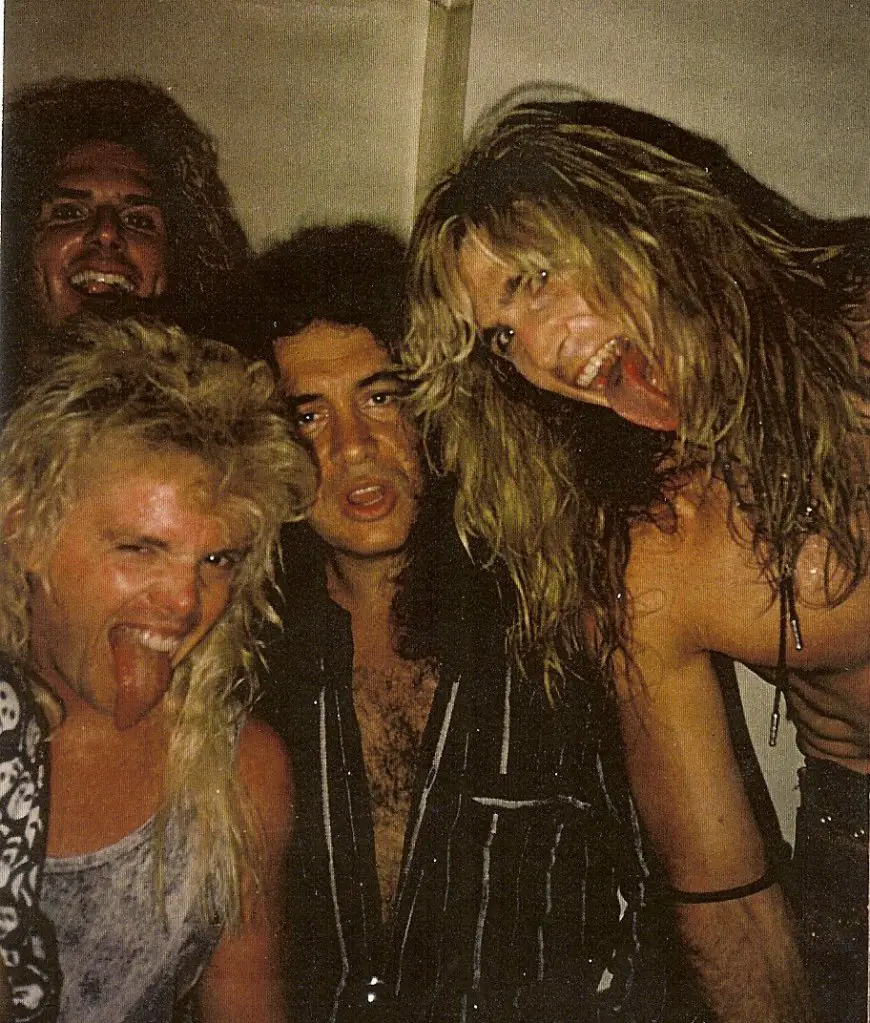
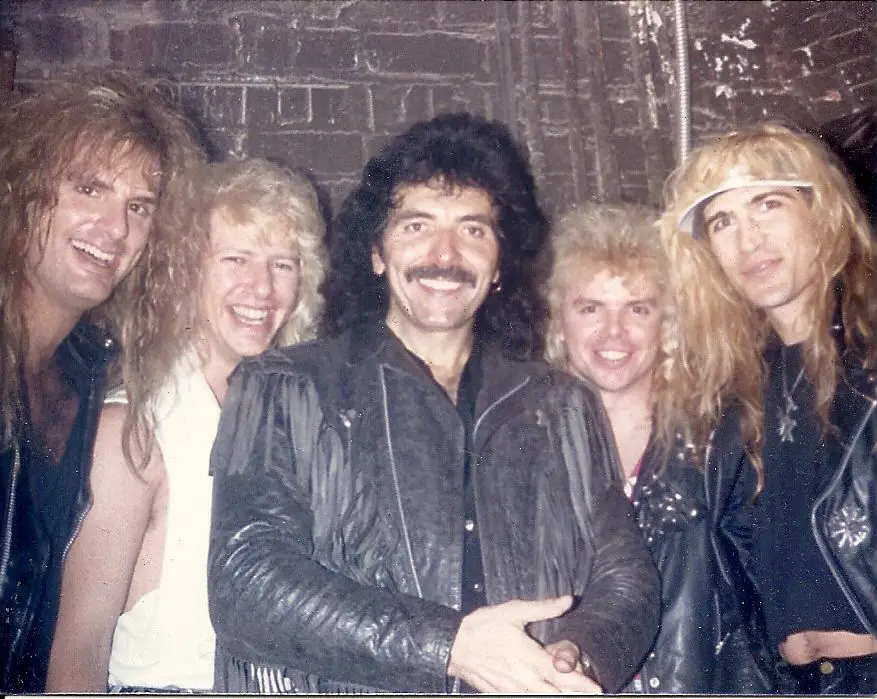
Andrew:
After the first record, Gene got you guys on tour with Black Sabbath as a supporting act, right? Let’s dig into that.
Brian:
We get a phone call from Gene, and he said, “In two days you guys are going on the road with Black Sabbath and Kingdom Come.” So, two days later, we’re doing a press conference in New York City and hopped on the Headless Cross tour with Black Sabbath, which was the Tony Martin era. Another thing is, my idol is Cozy Powell and he was drumming on that tour with Sabbath. I remember having lunch every day with Cozy Powell and just hanging out with him. That was surreal watching him from the side of the stage. It was a little bit hectic. You’re allowed thirty minutes and that’s it. No soundcheck. If you go over, they’ll pull the plug. It was just very rigid, very regimented. I guess you could say being a starving musician and getting thrown into that…I just remember the catered lunches, and dinners and everybody complaining about their food, and I was on top of the world thinking, “This is fantastic.”
And then, the tour gets cut short. They were blaming it on the politics with Ozzy because they were going through some lawsuits, and I think that hurt us because the shows kept getting canceled. I mean, the shows were fun and everything, but I think the budget was too much, and I was really bummed out because I was gonna play my hometown, The Riverside Theatre, in Milwaukee, and I was just so thrilled, and then the tour got canceled two cities before. At that point, everybody was going back to LA, and then Gene was saying that we were gonna go on tour with Warrant, but that just never happened.
Andrew:
For all its promise and deep-rooted connections, Silent Rage ultimately didn’t hit. Take me through the end of Silent Rage.
Brian:
We did another demo, we thought that we had another record in the pipe with Gene, and then RCA drops everybody, Gene included, us included. We were working with Bob Ezrin, and I think we did a killer demo. It wasn’t going to be a demo, it was going to be our record, and then it just turned into a demo that we were trying to shop around. Basically, grunge took over and put our genre on the backburner, and that’s basically it. The music scene in California was just really hard, and I was too old to move to Seattle, to try to buy some damn dream again. [Laughs]. Eventually, I ended up taking over my father’s machine shop and moving back to Milwaukee.
Andrew:
Any chance we see a Silent Rage reunion in the future?
Brian:
Oh, I don’t know. They did get another drummer after me. And they did some sort of a European tour, and they did ask me, but I was just starting my business and I had just had my first kid, my first daughter, and they were talking about doing gigs somewhere going to Europe, Germany, Italy, with a bunch of other bands, going up and playing for thirty-five minutes or something. And at the time, I was just pretty much retired from that, so they did get another drummer, and they did reform for a while. I don’t know if they tried to record any new stuff. A reunion? I don’t know…it’s not impossible.
Andrew:
My understanding is that it’s actually Silent Rage playing on the demo for “Domino,” which ended up on KISS’ album, Revenge, and you’re credited as “drum machine.” Is that true?
Brian:
Yeah, I think it’s Gene Simmons’ fault. [Laughs]. I think I might get credit there somewhere, somehow, but I just got a kick out of it that, “Oh, man. I guess it’s a compliment.” [Laughs]. But yeah, Gene gave us a cassette tape, and it was so vague. It was a cassette tape of him dabbling, and he gave us the cassette tape and he says, “Do something with this.” And so we got it, and said, “Let’s go early ACϟDC.” I mean, it’s completely blatantly ripping off ACϟDC. [Laughs]. I remember Gene’s lyrics said, “I got a problem. I got a mad-sized problem,” and I said, “How about predicament? That sounds cooler — a man-sized predicament.” Anyways, we worked on that, and that’s the demo. Gene then took it to Bob Ezrin, and then Eric Singer did his magic. Basically, it’s my drum parts, but he added a bunch of stuff to it too.
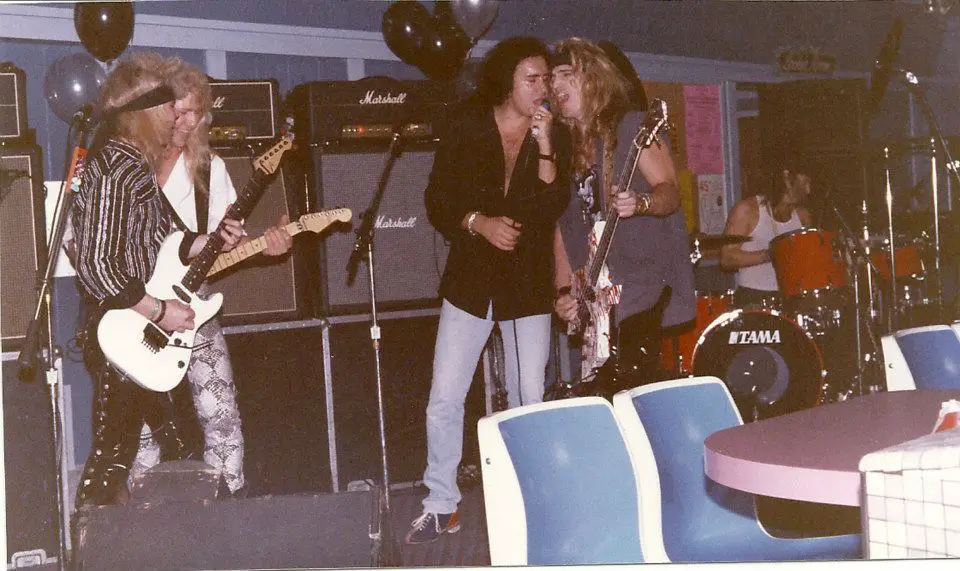


Andrew:
Did Silent Rage play on any other demos for Revenge?
Brian:
Well, we worked with Vinnie Vincent on some tracks. He was writing with Paul and Gene at the time for the album, but I don’t recall which tracks we worked on with him. You know, it was weird with Vinnie, he wouldn’t tell me the name of the song, and even if I heard it, I don’t remember any of it because it was just like five hours of just working on one song. I do remember with Vinnie Vincent, at the end of one song, I said, “Let’s just go really heavy at the end, like double bass,” and Vinnie said, “No, I don’t like it.” I wanted to do this big build-up at the end, and Vinnie didn’t like the build-up and said, “Well, let’s do it this way…more in line with my way of recording.” And then we get Gene on the phone, and Vinnie held up the phone to the speakers, and played both versions of the ending, and says “Gene, which one do you like better?” Well, Gene ended up liking my ending better, and then Vinnie goes, “Yeah, I like that too. It was my idea.” [Laughs].
Andrew:
Vinnie Vincent is a notorious character. Was that your first interaction with him, or had you met prior?
Brian:
No. He just kind of showed up at the rehearsal space that we had. He presented a song, and we just worked on it for four or five hours, then recorded it, and made a demo out of it. He was just a quiet, tiny little fella. I had never met him before, but that was odd, you know? Working with him on a few tracks was very…interesting.
Andrew:
Pushing through the 90s, Moonshine, which was backed by Michael Anthony of Van Halen. Take me through the group’s formation.
Brian:
It’s once again an Orange County connection. There was this guy, his name is Kevin Dugan. He was a guitarist playing in local bands, in Orange County, and he was also Michael Anthony’s bass tech. So, I’m making money and making a living with a band, we were doing shows of half covers, and half originals. We were playing Hawaii in Honolulu, and we were there for three months. So, one night, Kevin was in the audience, and I was like, “What are you doing here?” … “I’m wrapping up the Van Halen tour. This is our last city, and we’re wrapping it up.” So, we hung out, and we were sitting on the side of the stage where Michael Anthony was, watching Van Halen play, and then Kevin’s saying that Michael was putting a band together and that he would send me a tape. So, Kevin sends me a tape, and I really liked it. I came down, played the songs, learned the songs, and just hit it off with the guys. Then he tells me that Michael Anthony was actually going to back it, and get us a record deal somewhere.
We had just done like a demo, it was recorded in somebody’s garage, somewhere in Long Beach, and then, it came time to mix it, and Kevin said, “We’re gonna mix it at Eddie Van Halen’s 5150 studio, do you want to come down?” … “Alright, what’s the address?” And so, now, there’s no more Dodge Dart, now, I’ve got a beat-up truck. So, I drive my beat-up truck into the hills, with Lamborghinis behind me, trying to find Eddie Van Halen’s house. There was one house that had no numbers, just walls around it, so I pulled over, got out of my truck, and I walked up to the wall and peered over, and I saw a golf cart that was painted like Eddie Van Halen’s guitar, and I think to myself, “I think this is Eddie’s house.” [Laughs].
So, I press a button, and they let me in, and I go into 5150, and there’s like ashtrays that are stacked up with cigarettes, there’s eight-track cassettes, there’s drums sets — all the past Alex Van Halen drum sets — just laying everywhere, you know, the one with the tubes, they’re all laying everywhere. [Laughs]. It was definitely not a professional studio where you rent it out. Obviously, somebody lived there, and it was a bit of a disaster, but then, I saw the whole line of Eddie’s guitars, and I have to be honest, I kind of looked around, and I touched one, just to say I did it. [Laughs]. And Alex’s beautiful drumset was in the studio, and Kevin is like, “Go ahead, go play it.” … “No, no, no out of respect, I’ll sit behind it, but I’m not gonna touch a thing. I’m just gonna sit here and just soak it in.”
Anyways, we mix the demo. We tried to get record deals. We were auditioning new singers, but it wasn’t hitting, but you know what, I really, truly don’t have anything bad to say about anybody in that band, everybody was just cool. We just made music together, and we didn’t get too close. Anyway, another cool moment with Moonshine was when we went down to Cabo Wabo, and Michael Anthony and Sammy Hagar were there. We went down and we jammed with them. Everything was paid for — all expenses — the hotel and everything. Sammy and Michael were great guys, and we just played music with them and were cruising around on dune buggies, in Cabo. Just a bunch of knuckleheads. It was fun.

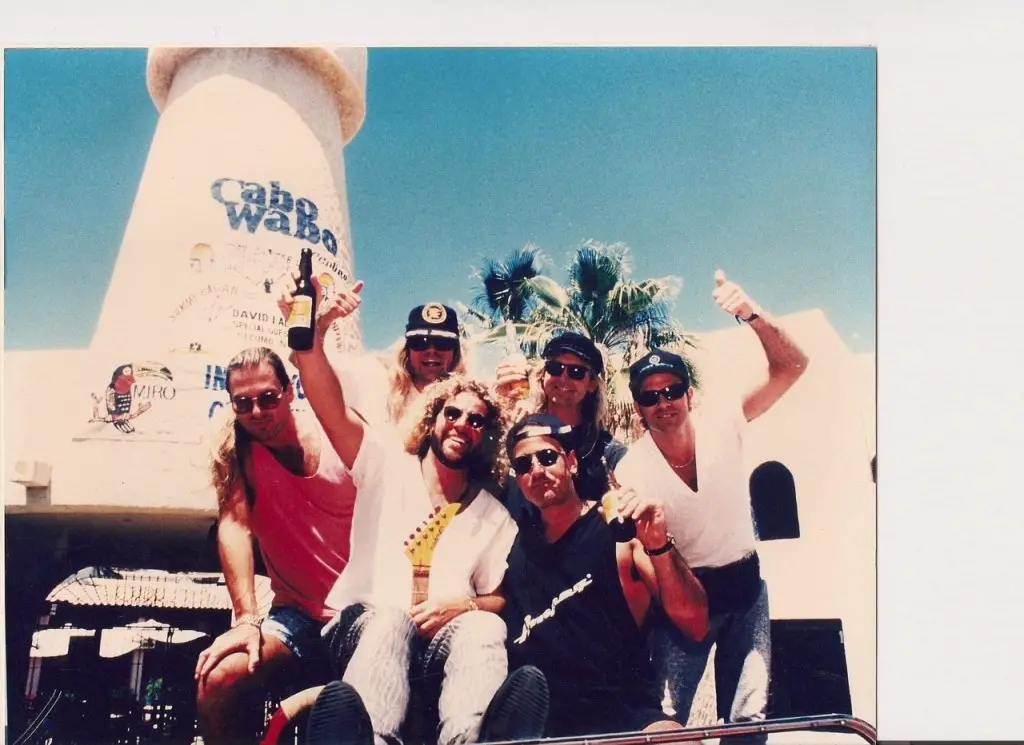
Andrew:
What prompted the end of your time in Moonshine?
Brian:
Well, actually, that’s the only band that I was officially fired from. I was kind of stumped. It was frustrating because I had no money, and I had a full-time job. And like I said, we were auditioning singers, and when you go into a rehearsal space, everybody has to divvy up cash for the rental space, and we’re still auditioning singers and I’m thinking, “I just I can’t do this. I can’t afford it. You guys find the singer. You can do it without me.” I thought I was joining a full band, I didn’t know we had to audition people. And they were changing this, and changing that, and then they hired a new bass player, who happened to be Mike Norton, from White Tiger. [Laughs]. I was like, “Mike, what are you doing here?” … “I’m your new bass player.” … “Well, it’s nice to see you, Mike.” [Laughs]. So, I ended up out of the band, and then they ended up getting a new drummer, I can’t recall his name, but they carried on. They played a tour opening for Mötley Crüe during the late 90s or early 2000s. I saw them up in Milwaukee, so I got to see all the guys again. I got fired from the band, but you know, there were no hard feelings.
Andrew:
The last thing I wanted to hit on is Richie Blackmore. You auditioned for Richie while he was putting Rainbow back together in the mid-90s, right?
Brian:
Okay, so, Stuart Smith — he was playing with Chuck Wright at the time, I get a phone call from him, and, mind you, I’m trying to make a living. I didn’t live with my parents. I didn’t live with a girlfriend. I had just gotten this job with really good insurance, and everything and it was maybe two weeks into the gig, and Stuart Smith calls, “Oh, you’ve got a round trip ticket, it’s all taken care of. You’re going to Port Jefferson, Long Island.” … “Alright, but I’ve got this job, I can’t just take off on a Friday, and come back here on a Tuesday.” So, I worked my magic — I forged a couple of little documents which said that a distant relative died in New York. [Laughs]. Anyway, I get on the plane, and sitting next to me is Phil Soussan, Ozzy’s bass player, and I say, “Any chance that you’re auditioning for Rainbow?” Phil looks at me, shocked, and says “Yes,” and I say, “Well, I’m Brian, I’m auditioning too. I guess they’re sending us both out there.”
And so, we get there and it was so surreal because Richie Blackmore was one of my ultimate idols. And when I got there, I’m sitting on a couch with all of Ritchie’s guitars, they’re just kind of laying around. I see how many cracked necks are glued back together, how many guitars he’s destroyed. Anyway, Richie comes in, and I purposely brought a cowbell, bell because I wanted to play the Deep Purple song off of Burn called “You Fool Noone,” which is one of my all-time favorites. I purposely brought a cowboy along, so I could hook it up in such a manner, and Richie goes, “I don’t remember it.” Well, he had just played two world tours that featured the song. He remembered it. He has a tendency to kind of…he’s a tough guy. Ritchie Blackmore definitely has a reputation. He’s a finicky guy, and he was giving me a hard time.
So, that was a Friday and then he said, “Okay, Saturday, we’re getting up at 11 o’clock, and we’re going to play soccer.” Now, I’ve never played soccer in my life, and I’m running around in my jeans, trying to play soccer with these guys. [Laughs]. After that, Rainbow got together, and we played, but then while I was there, Candice Night, Ritchie’s girlfriend at the time, who was probably about twenty, or thirty years younger than him, she jammed with us. She was a singer, and she’s the one who ended up in the band that became Blackmore’s Night later on. Anyway, once again, it just fizzled. I never got a callback. Nothing.

Andrew:
Since then, you’ve been back in Milwaukee, working in your machine shop. You’re starting to play in cover bands, and you’ve got a YouTube channel. Tell us more about that.
Brian:
Yeah, I’ve been back in Milwaukee since maybe 1997. I’m doing cover bands here and having some fun. I’m still playing. I’ve got drum videos, I have my own YouTube channel, Brian James Fox, and I do these little drum solo songs, but I try not to go over two minutes. I like to find songs that have no drums, so I can write my own drum parts, and you know, I’m just playing with myself, just having fun. That’s the great part about the drums — who needs a band to play?
Andrew:
What kind of drums are you playing these days? What else is next for you, Brian?
Brian:
I’m not endorsed, but I’m playing Pearl Drums, and I’ve got a beautiful kit. There’s a lot of pictures of my drum set, and there are my drum videos that have my current drum set too. But what’s in store for me is I’ve just joined another Milwaukee band after a hiatus. When I moved back here, I didn’t play live for maybe sixteen years. I didn’t touch a drumstick for eight years. I sold everything, and I was just retired, concentrating on my kids. Then, my kids got a little older, and I got a taste of it again, and I ended up getting another drum set. My machine shop relocated to a place where I can play in an open space because that’s always a tricky thing for a drummer, you can’t live in an apartment and have a drum set. [Laughs]. So, I’m currently starting up again. Milwaukee is really big on summer festivals, and every second of the summer that’s possible, there will be bands everywhere. It’s a great live music scene. It’s not original or anything, it’s just fun. You put your creative energy into the cover songs, and people dig it. It’s a lot of fun. My kids are healthy, I’ve been married for over twenty years, we live in a nice neighborhood, that’s all I can ask for. I’m happy.
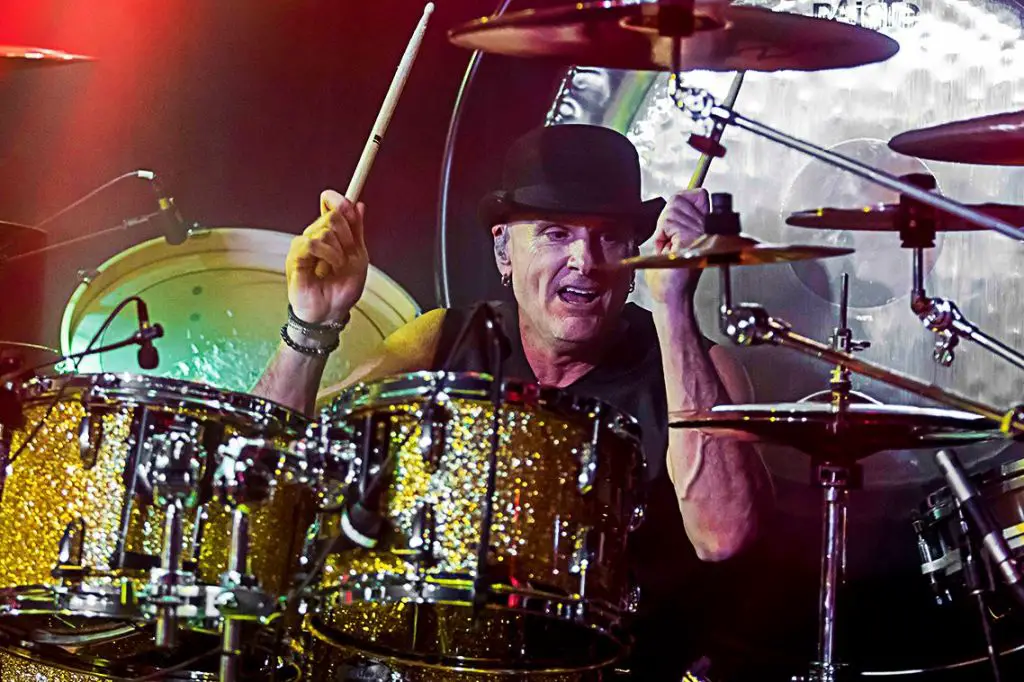
Interested in learning more about White Tiger & Silent Rage? Check out the links below:
Dig this interview? Check out the full catalog of VWMusic Interviews, by Andrew Daly, here: www.vinylwritermusic.com/interviews





Leave a Reply